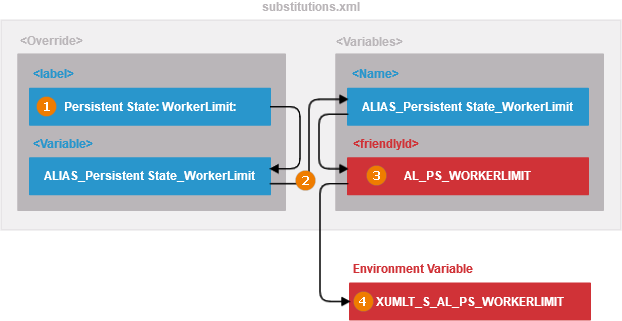- unpack a repository to a chosen directory
- deploy a repository
- run a repository
- specify dedicated xUML service settings for deployment
System Requirements
This tool only works on Linux operating systems. You need at least
- Linux kernel 4.19
- GLibc 2.28
Commands
unpack
Unpack a given repository file to the destination directory.
The repository will be unpacked to a sub-directory in the destination directory. The name of the sub-directory is derived from the repository file name.
| Parameters / Options | Mandatory | Allowed Values | Example |
|---|---|---|---|
| Path to a repository file. | a valid path | xuml-tool unpack ./hello_world.rep . | |
| Path to a parent directory to extract the repository to. |
deploy
Deploy a given repository to a given destination.
The repository will be unpacked to a sub-directory in the destination directory.The name of the sub-directory is derived from the composite service name.
| Parameters / Options | Mandatory | Description | Allowed Values | Example | |
|---|---|---|---|---|---|
| Path to a repository file. | a valid path | xuml-tool deploy ./hello_world.rep /opt/xuml_services | |||
| Path to a parent directory to extract the repository to. | |||||
--server-hostname | Specify a value for setting | localhost | Default value if not specified. | ||
| a valid external host name | |||||
--existing | Specify what to do if the repository being deployed is already existent in the target directory. | remove | Remove the repository from the target folder if already existent, and deploy the new repository. | ||
delete | |||||
overwrite | Overwrite files of an already existing repository. | ||||
abort | Abort deployment if the repository is already existent (default). | ||||
run
Deploy and run a given repository.
This command uses the deploy command described above in combination with Runtime command bridgeserver (see xUML Runtime Command Line Options).
| Parameters / Options | Mandatory | Description | Allowed Values | Example | |
|---|---|---|---|---|---|
| Path to a repository file. | Provide the path to the repository file to be deployed and started. The deploy target directory is derived from the configuration file specified with --server-config. | a valid path | xuml-tool run ./hello_world.rep --server-config config.json | ||
--server-config | Provide the path to an an xUML Runtime configuration file containing Runtime command line options. The contents of such a file are described on xUML Runtime Command Line Options. This file must at least contain a minimal configuration consisting of
| a valid path to a configuration file | |||
--server-hostname | Specify a value for setting | localhost | Default value if not specified. | ||
| a valid external host name | |||||
--existing | Specify what to do if the repository being deployed is already existent in the target directory. | remove | Remove the repository from the target folder if already existent, and deploy the new repository. | ||
delete | |||||
overwrite | Overwrite files of an already existing repository. | ||||
abort | Abort deployment if the repository is already existent (default). | ||||
xUML Service Settings
A service repository contains lots of tab files that describe the service. Concerning xUML service settings, these tab files contain variable content that is substituted on deployment by default setting values.
Using the xuml-tool, you can overwrite those default by defining special environment variables on your system. The name format of these environment variables have to follow the following scheme: XUMLT_S_<setting id>.<setting id> is the friendly id of a setting as defined in file substitutions.xml.
<Substitutions>
[...]
<Variables>
<Variable default="2" friendlyId="AL_PS_WORKERLIMIT"
name="ALIAS_Persistent State_WorkerLimit"
type=""/>
[...]
</Variables>
[...]
<Display>
<Category label="Add-Ons">
<Section label="Persistent State">
<Override label="Persistent State: WorkerLimit: "
variable="ALIAS_Persistent State_WorkerLimit"/>
[...]
</Section>
[...]
</Category>
[...]
</Display>
[...]
</Substitutions>
To find this file, unpack the service repository. You can find this file in the root directory.
Refer to the picture below for how to find the friendly id of a setting and use it to build the name of the environment variable.
- Search for the Bridge display label of the setting.
- Search for the related variable name.
- Take the friendlyId from the variable and...
- ...use it to build the name of the environment variable (add leading
XUMLT_S_).
